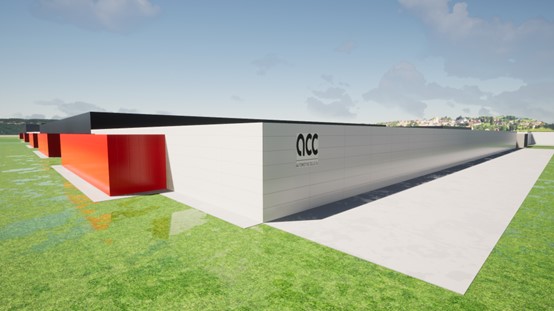Adolfo Urso, Italian Minister of Industry, has recently exerted pressure on Stellantis to proceed with the investment in the planned battery plant in Termoli, Italy, or risk losing subsidized fund.
Termoli Battery Plant in Italy
Minister Urso is expecting a confirm commitment from Stellantis "within hours" regarding its plans to build a battery plant in Italy with ACC, a joint venture battery company with Mercedes and TotalEnergies. Failure to respond may result in the withdrawal of subsidies allocated for the project, and the government would move public funds for the project elsewhere.
As reported by Politico, Minister Urso believes that Stellantis has been lagging in its investments in Italy, stating, "The government has done its part, the [Stellantis] company has not." According to Urso, the Italian government has agreed to Stellantis' requests, including the company's proposal to allocate more public funds to electric vehicle purchase incentives. In addition, the Italian government opposed the new EU "Euro 7" car pollution regulations at the behest of Stellantis. Urso declared at an event in Rimini last Thursday, "It is the duty of [Stellantis]... to relaunch the car industry in Italy today. We have been waiting for these answers for far, far too long."
Stellantis, along with TotalEnergies/Saft, established the ACC battery company in 2020, with Mercedes-Benz becoming a partner in 2022. Stellantis holds a 45% stake, while Mercedes and Saft hold 30% and 25% stakes, respectively. The three parties plan to build a total of five battery mega-factories in Europe and North America, aiming to reach a battery production capacity of 400 GWh by 2030. Three of the battery plants are located in Europe: Billy-Berclau Douvrin in France, Termoli in Italy, and Kaiserslautern in Germany. The first phase of the Billy-Berclau Douvrin battery mega-factory, with a capacity of 13 GWh, began production in June 2023, and the second phase is currently under construction.
Regarding the Italian battery plant, Stellantis and ACC formed a joint venture, planning to convert the automaker's engine manufacturing plant in Termoli into a battery production facility. Reuters reported that the Termoli plant is expected to commence operations by 2026.
In February of this year, ACC announced that it had secured the largest-ever debt financing in the European automotive industry, amounting to 4.4 billion euros, to be used for the construction of the three major European battery plants. However, by June, multiple media outlets including Automotive News reported that Stellantis and ACC had put the plans for the Italian and German battery plants on hold. The joint venture is considering adjusting its battery technology focus due to concerns over the slowdown in the electric vehicle market and cost concerns, intending to concentrate on low-cost LFP batteries. Stellantis officially announced a partnership with CATL at the end of last November to develop LFP batteries in Europe.
The planned Termoli battery plant in Italy is designed to have an annual production capacity of 40 GWh and is expected to involve an investment of approximately 2 billion euros, with the Italian government providing a financial subsidy of 370 million euros for the new facility of Stellantis and ACC. The Italian funding comes from public money, specifically from the EU's post-COVID recovery fund.
In response to the Italian urging, Stellantis subsequently announced on August 22th that ACC is "enhancing" plans for the Termoli plant, "to introduce a new technology for the production of cells and modules, in line with the evolution of the market." It also stated that it would increase the output of hybrid components at the plant. ACC also indicated that it would announce a new construction plan for the plant later this year or early next year.

Stellantis' operations in North America are also facing challenges. Carlos Tavares, CEO of Stellantis, recently spent three days in Detroit to reassess and improve the company's operations in the United States. The group's revenue dropped by 40% in the first half of this year, mainly due to the slowdown in North American business, which used to be the growth engine for Stellantis. The company recently decided to cease production of the old Ram 1500 trucks at the Detroit plant and plans to lay off 2,400 employees. Due to price increases against the trend, data from Cox Automotive shows that the sales of Stellantis' Ram and Jeep brands in the United States have declined by at least one-third since the first half of 2019.
Furthermore, Italian Industry Minister Urso confirmed that Italy is communicating with Chinese car manufacturers, hoping that they will invest and build factories in Italy, stating "at least another carmaker is needed."







